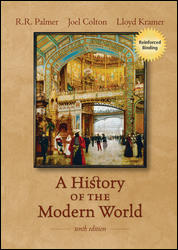
History of the Modern World, 10th Edition (Palmer)Chapter 10: Napoleonic EuropeChapter OverviewNapoleon, catapulted to power by his own ambition and the failures of republicanism in revolutionary France, very nearly united Europe around the turn of the nineteenth century. Initially, many Europeans on the continent cooperated with his designs, but in the end, most of Europe rallied together to resist his imperial ambitions. The early coalitions against Napoleon failed because of the lack of unity among the competing European powers. Napoleon’s rule brought reform to many regions of Europe, fostering more modern systems of governance and law. At the same time, opposition to Napoleonic rule contributed to the growth of German nationalism. The Continental System, devised as a means of checking British economic supremacy, encouraged antagonism toward Napoleon as it harmed trading interest across Europe. As resistance to Napoleon grew, so did the willingness of the other European powers to cooperate in orchestrating his defeat and checking the power of France. Napoleon’s incursions into Russia left French forces weak and vulnerable. The Congress of Vienna sought to contain the power of France, and the Bourbons were restored to the throne. The French Revolution and the Napoleonic empire introduced new forms of governance that were more effective than the monarchical styles of old. They also introduced new ideas about democracy, politics, and economics. |  |















